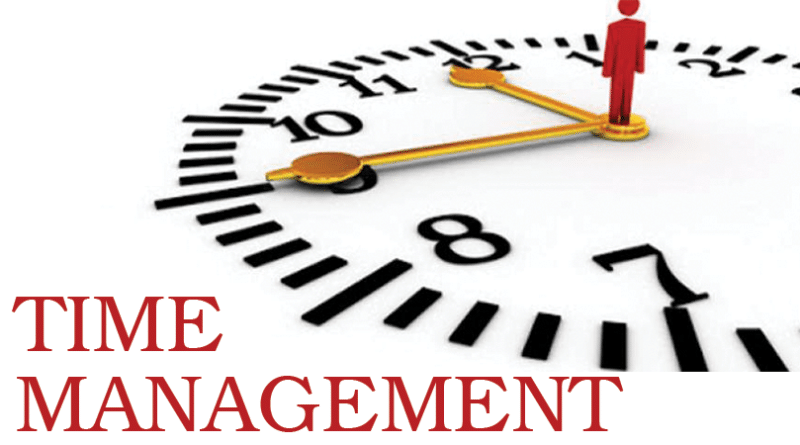Work Smarter, Not Harder – The Secrets To Time Management
I often hear the complaint “there’s not enough time in the day or I have too much to do”. However, we all get the same 24 hours, so why is it that some people get more accomplished with their time than others? Good time management is the answer. While time management may be different for everyone the definition of it remains the same.
noun: time management (time man·age·ment)
- the ability to use one’s time effectively or productively, especially at work.
Good time management allows you to work smarter, not harder, so that you can get more done in less time. Being busy doesn’t necessarily mean you are being effective. We will discuss ways of making time work better for you.
Start Early
Most successful men and women have one thing in common – They have the habit of going to bed at a reasonable hour and rising early. As a result, they are always more effective than those who sleep in until the last possible moment. The truth is, that as the day progresses, your energy levels start to decline, affecting your productivity and performance.
When you get up early and plan your day in advance, you tend to be more calm, clear-headed, and creative throughout the day. A few minutes of quiet reflection before you begin your day can save you many hours executing the task.
Prioritize
Carry a planner or notebook with you and write down all the tasks that come to your mind during the day. Before the start of the day or even better, the night before, make a list of tasks that need your immediate attention. Unimportant tasks can consume much of your time if not.
A major benefit of preparing your daily list the night before is that it lets you sleep more soundly. Once you have written down everything you have to do on your list, it clears your mind and enables you to sleep more deeply. A major reason for insomnia is your lying awake trying not to forget to remember everything that you have to do the following day. When you plan your day the night before, your subconscious then will go to work on your plans while you are asleep, allowing you to wake up in the morning with ideas and insights that apply to the work of the day.
The main thing about making lists is that you actually have to use them for them to work. You may want to set reminders on your phone or computer to keep you on task. Make sure your lists are attainable. Some tasks need to be completed on that specific day, while other less important tasks could be carried forward to next day. Be brutally realistic, not idealistic when making your schedule. No one wants a 30-item to-do list and have to at the end of the day look at the 20 items that didn’t get done, plus add 5 more for the next day. Creating a schedule you can’t actually keep is setting yourself up for frustration. If you don’t actually stick to your schedule it will soon become useless. Prioritize yours and others’ needs and plan accordingly. To better manage yourself, you may prefer to make 3 lists — work, home, and personal.
Scheduling your time reduces stress and releases energy. The very act of organizing your day, week, and month will give you a greater feeling of control, increasing productivity throughout your day. You’ll feel in charge of your life. It actually increases your self-esteem and improves your sense of personal power.
Set up Deadlines
When you have an important task at hand, set your deadline a few days before the task absolutely has to be done. This allows for the possibility that other things will get in the way, but also allows for you still to get the task completed. There is no point in setting deadlines if you make executive decisions to always push them back. Set a realistic deadline and try your best to stick to it.
Avoid Procrastination
Procrastination badly affects productivity, resulting in wasted time and energy. Procrastination can be a major problem in both your career and your personal life, if you let it.
Learn to say No, Instead Delegate
Stress often occurs when we accept more work than our ability. The result is that our body starts feeling tired which can affect our productivity. Politely refuse to accept additional tasks if you think that you’re already overloaded with work. Take a look at your ‘To Do’ list before agreeing to take on extra work. As an alternative, suggest delegating tasks to your junior staff.
Delegation is not running away from your responsibilities but is an important function of management. Learn the art of delegating work to your subordinates as per their skills and abilities. For those of us who like to be in control, the very thought of this is likely to provoke a bit of anxiety. The truth of the matter is that no matter how good we are, we can’t do everything. Sometimes we take on more than we can handle. Delegation is not a sign of weakness, but a sign of intelligence. Find competent, reliable people and share some of the responsibilities.
Avoid Multitasking
Some feel that multitasking is an efficient way of getting things done, but the truth is that it hampers productivity while we are switching back and forth between tasks. With each switch we pay a cognitive cost and a time cost. It takes time to get mentally back into the task, thus making us less efficient. When switching we lose the depth of our engagement. Let’s face it, our minds work better when we are truly able to focus and concentrate on one thing at a time.
Take Some Breaks & Use Your Downtime
This tip requires some balance, however, if you find yourself sitting in early morning traffic, this may be a good time to start prioritizing your day or making plans for dinner. If you’re waiting in the doctor’s office, this may be a good time to write the grocery list. If you have opportunities like these make the best of them, but also remember to use them for relaxation as needed.
Using all of your downtime for planning and prioritizing is bad and can lead to increased stress and burnout. Too much stress can take toll on your body and affect your productivity. Find time throughout your day to take a walk, listen to some music or do some quick stretches. Just 10-15 minutes can do the trick in many cases, making you feel rejuvenated and satisfied.
Reward yourself
Reward yourself for meeting a difficult challenge.When you accomplish something, celebrate it! How you celebrate is up to you. My word of advice is to make sure whatever you choose to do is something you really enjoy, don’t do it in excess, and don’t let it cause you to get further behind.
Time management skills are an essential part of making your day just a little easier. Find what works for you and stick to it. In the end, it will allow you to be less stressed and more productive. Now go out and use that time wisely!



